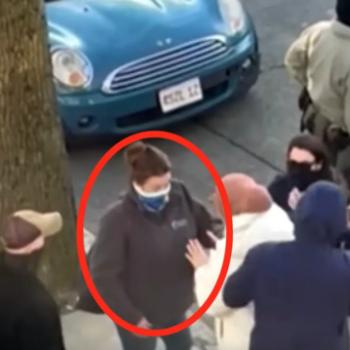Just think of the names: Canon Crisparkle, Charity Pecksniff, Noddy Boffin, Durdles, Horatio Fizkin, Thomas Gradgrind, Mr. Grimwig, Mr. Murdstone, Mrs. Gummidge, Mr. Snagsby, Dr. Slammer, Inspector Bucket, Captain Swosser and Professor Dingo, Milly Swidger, Dismal Jemmy, the Artful Dodger, The Vengeance, Nicholas Nickleby, Martin Chuzzlewit, Uriah Heep, Luke Honeythunder, Wackford Squeers.
Wonderful.
Anyway, Charles Dickens’ 200th birthday is yet another excuse for me to yet again post a bit of George Orwell’s classic essay on Dickens:
His radicalism is of the vaguest kind, and yet one always knows that it is there. That is the difference between being a moralist and a politician. He has no constructive suggestions, not even a clear grasp of the nature of the society he is attacking, only an emotional perception that something is wrong, all he can finally say is, “Behave decently,” which, as I suggested earlier, is not necessarily so shallow as it sounds.
Most revolutionaries are potential Tories, because they imagine that everything can be put right by altering the shape of society; once that change is effected, as it sometimes is, they see no need for any other. Dickens has not this kind of mental coarseness. The vagueness of his discontent is the mark of its permanence. What he is out against is not this or that institution, but, as Chesterton put it, “an expression on the human face.”
Roughly speaking, his morality is the Christian morality, but in spite of his Anglican upbringing he was essentially a Bible-Christian, as he took care to make plain when writing his will. In any case he cannot properly be described as a religious man. He “believed,” undoubtedly, but religion in the devotional sense does not seem to have entered much into his thoughts. Where he is Christian is in his quasi-instinctive siding with the oppressed against the oppressors. As a matter of course he is on the side of the underdog, always and everywhere.
To carry this to its logical conclusion one has got to change sides when the underdog becomes an upperdog, and in fact Dickens does tend to do so. He loathes the Catholic Church, for instance, but as soon as the Catholics are persecuted (Barnaby Rudge) he is on their side. He loathes the aristocratic class even more, but as soon as they are really overthrown (the revolutionary chapters in A Tale of Two Cities) his sympathies swing round.
















